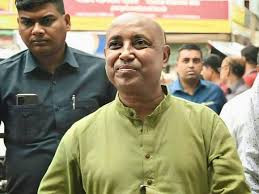TMC Elevates Women as Mentors in Malda Zilla Parishad, Aiming to Boost Governance and Representation
IIE DIGITAL DESK : The move reinforcing its commitment to women’s leadership and local governance, the Trinamool Congress (TMC) has appointed several senior women leaders as mentors across key posts within the Malda Zilla Parishad. The decision aims to bring both experienced guidance and inclusive representation to one of the state’s most politically significant districts.
To strengthen leadership at the grassroots level, TMC has assigned senior women—including previous office holders and emerging leaders—as district-level mentors, advising Zilla Parishad members on policy, social welfare, and community mobilization. The initiative complements earlier steps where women assumed top positions in block-level and worker organizations across Malda.
This push aligns with TMC's broader aim of enhancing transparency and youthful energy in its leadership, as evidenced by recent shake-ups in women’s, youth, and labor wings across Malda, North and South Dinajpur, and seven other districts.
While the party has not publicly disclosed a full list of mentors, sources indicate that these appointments include experienced local leaders and district-level functionaries, some of whom bring years of Panchayat-level administrative experience. Their tasks include supporting Zilla Parishad (ZP) initiatives in education, healthcare, infrastructure, and gender-sensitive programming.
These women mentors are expected to function as bridges between the ZP's elected members and administrative machinery—a role intended to elevate the quality of developmental planning and ensure that inclusive voices are heard in decision-making processes.
Malda's political context underscores the importance of this move. The district has historically seen intense intra-party competition and recently made headlines following violent incidents involving TMC leaders, revealing internal tensions over local influence and governance.
The appointment of women mentors serves multiple purposes: meeting gender-based reservation and representation targets, restoring public trust, and steering governance through credible, women-led oversight. Placing female mentors in district bodies may also help counter criticisms of favoritism and factionalism highlighted in local media.
Mentors are expected to take an active interest in examining ZP-level programs, ensuring transparency in finances, facilitating community engagement, and identifying areas needing immediate attention—especially education, women’s health, sanitation, and rural infrastructure.
TMC insiders describe the decision as an attempt to institutionalize mentorship, pairing female leaders with elected representatives to enhance delegation, succession planning, and capacity-building.
The move reflects a growing trend within TMC to prioritize female leadership at multiple administrative levels. Similar appointments were made to head women's workers' organizations and youth federations early last year, reflecting a structured approach to diversity in representation .
Given Malda’s scale in panchayat administration and its demographic diversity, women mentors could catalyze gender-responsive governance and support marginalized voices in policymaking.
While community leaders and women’s groups have welcomed the inclusion, some local critics cite ongoing internal power struggles and occasional violence among TMC leaders as indicators that more systemic change is needed.
TMC officials, argue that these appointments demonstrate a commitment to clean, efficient administration underpinned by solid female leadership and structured mentorship aimed at improving local governance.
The effectiveness of the mentorship scheme will hinge on active collaboration between appointed mentors and elected representatives, along with clear administrative support. Success in addressing core issues—such as infrastructure, educational outcomes, health services, and women's economic empowerment—could define the initiative's lasting impact ahead of 2026 elections.
As mentor positions become functional, stakeholders will evaluate their role in driving change in Malda and whether this model inspires similar efforts across other TMC-ruled districts.
Malda’s move to elevate experienced women as district mentors reflects an evolving political approach in grassroots governance, blending gender parity, administrative mentorship, and developmental oversight. With local administration dynamics in flux, public focus now turns to how these changes translate into tangible progress on the ground.
You might also like!














